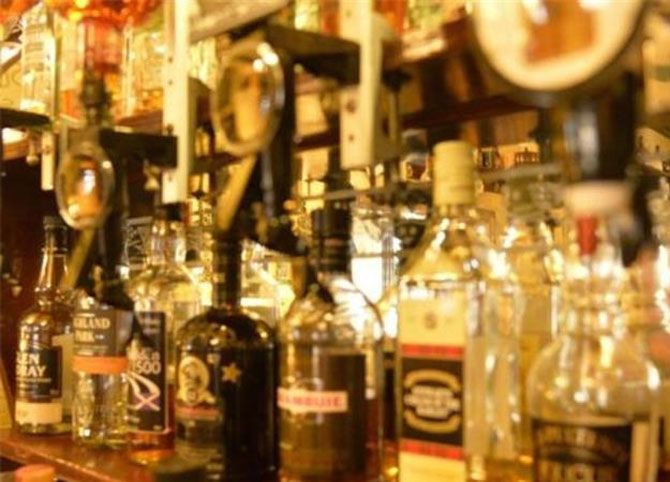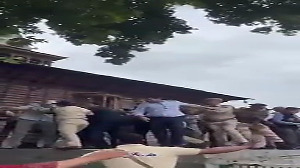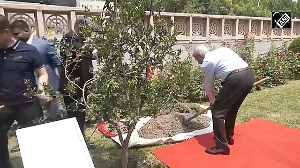
A bill providing for up to capital punishment to those manufacturing or trading illicit liquor in the event of hooch tragedy was on Wednesday unanimously passed by both Bihar legislature which also adopted a resolution unanimously that its members will not consume liquor.
“Charity begins at home. If we are making a law, then we should unanimously pass a resolution from here itself. The message of unity in the form of a resolution that we will neither drink and nor promote drinking should go out to the people," Chief Minister Nitish Kumar said while intervening on Excise Minister Abdul Jalil Mastan's reply during a debate on the Bihar Excise (Amendment) Bill, 2016.
In the first phase, there will be a complete prohibition in rural areas besides a complete ban on country-made liquor across the state while Indian Made Foreign Liquor will
be sold in limited areas of the state i.e. municipal corporations and councils.
"The Bihar Excise (Amendment) Bill 2016 talks about complete prohibition in the state. The provisions of the new bill that incorporates some stringent measures will come into effect from April 1," Kumar said.
Referring to the Constitutional provision of Directive Principles of State Policy, Kumar said "it is the responsibility of the state to work towards implementing prohibition in the state. We are moving in that direction in a strategic manner and that's why we are implementing prohibition in villages in the first phase and later prohibition will be implemented in towns in second phase after a creating a proper atmosphere in this regard."
Describing some of the stringent provisions that would work as deterrent in implementing prohibition in the state, Kumar said that those manufacturing or trading illicit liquor in the state in the event of hooch tragedy will be awarded punishment upto capital punishment.
Similarly, there is a provision for life term sentence for those who manufacture and trade illicit liquor and whose consumption makes a person disabled or cause loss to the human body, Kumar said.
Those who manufacture, trade and transport illicit liquor or making people drink industrial spirit or country-made liquor as foreign liquor, then such person would be handed down with a minimum of 10 years of sentence which may extend up to life, besides a fine of Rs 1 to 10 lakh.
If anyone creates a scene at public places after consuming liquor, he would be sentenced with a minimum five years of sentence which may be extended up to 10 years, Kumar said.
If anyone creates nuisance after having liquor at one's home, campus and shop, then the accused person would be given a minimum of 10 years of imprisonment that can be extended up to life.
A person would be awarded with 7 to 10 years of sentence in addition to a fine of Rs 10 lakh for forcing minors to drink liquor, Kumar said adding that if anyone forces women and minors into illicit liquor business, he/she would get mprisonment between 7 to 10 years, besides a fine of Rs 10 lakh.
Similarly, the government would seize property and other goods and seal the campus if anyone is found indulged in the manufacture and trade of illicit liquor. Kumar said that the idea of enforcing ban came when some women had demanded a total prohibition on alcohol in the state during an official function on July 9 last year, to which "I promised them that I would enforce ban on liquor if I return to power."
Kumar said that he had announced on November 26 on the occasion of 'Prohibition Day' that his government would implement a complete ban on country-made liquor from April 1, 2016.











